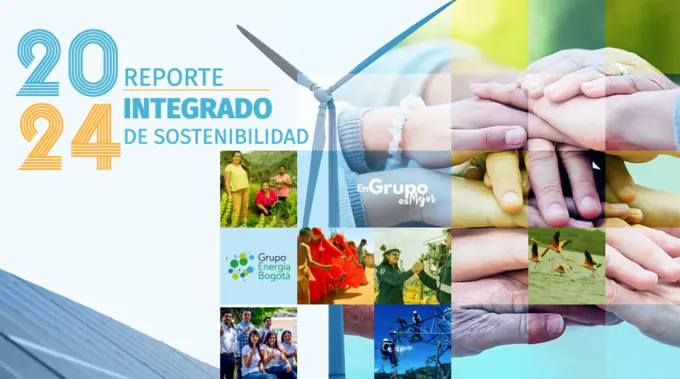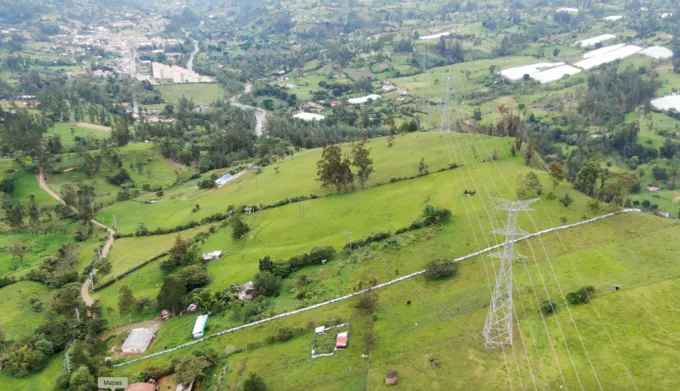
En Grupo es mejor
El Grupo Energía Bogotá es un gran equipo de más de 2.700 personas en Colombia, Perú, Brasil y Guatemala que trabaja unido para hacer historia, para apoyarse, transformarse y mejorar vidas con energía sostenible y competitiva.

Así crecimos en el 2024
Mejoramos vidas con energía sostenible y competitiva
-
billones ingresos totales del año
-
billones EBITDA ajustado
-
billones en proyectos de infraestructura
-
mil millones en inversión social
-
mil millones en proyectos sociales
-
mil millones en iniciativas ambientales

¡En Grupo es Mejor!
Este informe integrado de sostenibilidad, anclado en el concepto ‘En Grupo es Mejor’, es la esencia de cómo trabajamos en el GEB y nuestras filiales, en equipo, para lograr resultados, generando un mayor impacto en cada iniciativa y cada logro alcanzado y afrontando los desafíos para garantizar la energía del futuro.

Noticias con energía
Encuentre aquí los comunicados, boletines y notas de prensa del Grupo Energía Bogotá y sus filiales de Colombia, Perú, Brasil y Guatemala.




¿Ya leíste nuestra revista Inergia?
En el GEB, a través de Enlaza, tenemos la única revista digital de Colombia dedicada a la transmisión de energía eléctrica, Inergia. Noticias, crónicas, informes, videos y mucho más contenido para que estés al día en el sector.
Cumplimiento

¡No te pierdas nuestro pódcast!
Más allá de la electricidad: el poder transformador de la energía
En este episodio de En Grupo Es Mejor, conversamos con Ricardo Ávila, economista experto en temas energéticos, periodista y miembro de la Junta Directiva del GEB, sobre uno de los temas más urgentes para el país: el complejo panorama energético que hoy enfrenta Colombia.
Ávila hace un diagnóstico claro y sincero sobre los riesgos actuales, desde la caída en la autosuficiencia de gas hasta los cuellos de botella en transmisión y la incertidumbre institucional.
“La expresión de que hay preocupación es absolutamente justificada”, advierte.

